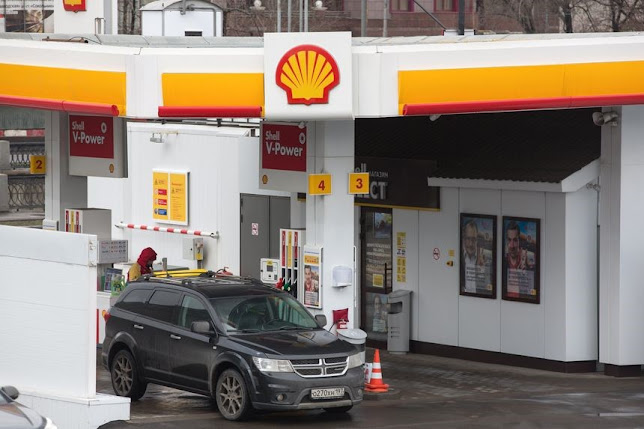Oil Majors Have Cash for a Good Clearout in Russia
Shell’s write-down of its Russian assets is more than expected, but high commodity prices cushion the blow
By Rochelle Toplensky
A Royal Dutch Shell gas station in Moscow./ PHOTO: ANDREY RUDAKOV/BLOOMBERG NEWS
It is a great time for oil companies to be kitchen-sinking Russian assets.
Shell SHEL -2.13% said Thursday it expects to write off $4 billion to $5 billion worth of assets in the country—much more than the $3 billion of Russian noncurrent assets on its books at the end of last year.
The additional impairment includes receivable write-downs, expected credit losses and onerous contracts.
The energy giant also announced some decent first-quarter numbers, which isn’t a surprise with the Brent oil-price benchmark averaging $97 a barrel in the period.
Analysts discussed production volumes, margins and working capital swings, but barely mentioned was the bigger-than-expected Russian write-down.
A couple of billion seems less significant when set against quarterly free cash flows of $6.3 billion, which is what analysts on average forecast the company to report in full results next month.
Shell’s shares ended the European morning about 1% down, only slightly behind its regional peers.
Shell first flagged its Russian write-off at the end of February, just days after Russia invaded Ukraine.
Many major oil companies had some operations in Russia and all, except TotalEnergies, now plan wholesale exits.
Investors are expecting further impairments in the billions of dollars this quarter.
Exxon Mobil finished last year with $4 billion worth of Russian assets.
BP is the worst affected: Its stake in Russian producer Rosneft clocked in at $14 billion and it expects an additional noncash charge of $11 billion for foreign exchange losses accumulated since 2013.
Shell’s preliminary estimate could be a sign that Russian assets are a floor rather than a ceiling for impairments.
TotalEnergies has $13.7 billion of capital employed in Russia.
It has been in the country for more than 25 years and has operations across its business.
As of last month, the French company intends to keep its minority interests in Russian properties while winding down most other businesses.
As sanctions ratchet up, pressure is mounting on it to follow its rivals.
The step might not be too financially painful, assuming commodity benchmarks remain high.
Companies’ ability to capitalize on high oil and gas spot prices is limited by long-term supply contracts, but there is some wiggle room and those with trading desks also can benefit.
Shell forecasts that a $10 a barrel increase in Brent crude adds $1 billion a year of operating cash flow to its integrated gas business and $3 billion a year to its upstream division.
For context, in the fourth quarter of 2021 Shell generated $8.2 billion in operating cash flow with an average Brent price of $80 a barrel.
Rising gas prices also provide a lift.
The last time major oil companies wrote off billions of dollars in assets was during the early stages of the pandemic, when prices and demand plunged.
It prompted some painful dividend cuts.
This time around, things are much easier.
Don’t be surprised if there are a few extras added to the bill.


0 comments:
Publicar un comentario